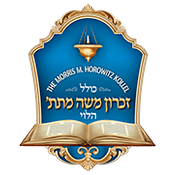Parshas Ki Sisa - Parah 1


׳׳ראה קראתי בשם בצל-ל וגו׳ ואמלא אותו רוח אלוקים בחכמה ובתבונה ובדעת וגו׳
לחשוב מחשבות לעשות בזהב ובכסף ובנחושת׳׳ שמות לא;ב-ד
“See I have called by the name Bezalel… and filled him with a Godly spirit, with wisdom, insight and understanding… to plot strategies to create with gold and with silver and with copper.” Shemos 31:2-4
There are two questions that arise here on these Pasukim. The first of which is that we know from the Gemara in Brachos that Bezalel knew how to formulate the letters with which the Heavens and the Earth were created. If Bezalel was on such a high level of understanding, why then does the pasuk praise him only for his tremendous capabilities as an architect?
Secondly, we know that all of the Bnei Yisroel donated gold for the Meleches Hamishkan (building of the Tabernacle) equally. How did Bezalel know which gold was to be used for the creation of the Kapores, Keruvim, Shulchan and Menorah which would raise the precious metal to a level of Kedushah Gedolah (High Sanctity), and which gold was to be used for covering the Kerashim (beams) and for the stanchions and the rings, which bore a lesser level of sanctity?
The Kanfei Nesharim Al Hatorah answers that the designation of the gifts for the Meleches Hamishkan was based off of the intentions of the donor. One who brought his gold wholeheartedly and with great fervor and happiness without any ulterior motives had his gift elevated to a level of high sanctity. However if one donated his gold with a lack of happiness and fervor for the Mitzvah, rather out of embarrassment at being left out or because they felt they had to, their gold was used for covering the beams and remained at a lower, limited level of sanctity.
Now who could possibly have determined the inner intentions of the donors to decipher who had made their pledge wholeheartedly? Bezalel, that’s who. That’s why the pasuk states that Hashem had filled Bezalel with wisdom to understand what to do with the gold. Bezalel understood the intentions of all the donors of the nation and distributed the raw materials accordingly. (See also Rashi’s interpretation of ׳חכמה תבונה ודעת׳ and the Targum Yonasan Ben Uziel on this pasuk who translates ׳׳למיחשב ברעיוניהון היך למועבד בדהבא׳׳)
It is an unbelievable opportunity to be able to give Tzedakah. The way to sanctify our charity is to give wholeheartedly, with fervor and great happiness while performing this special Mitzvah. By doing so we can make our Tzedakah count that much more.
Moshe Rothenberg / MMHK
